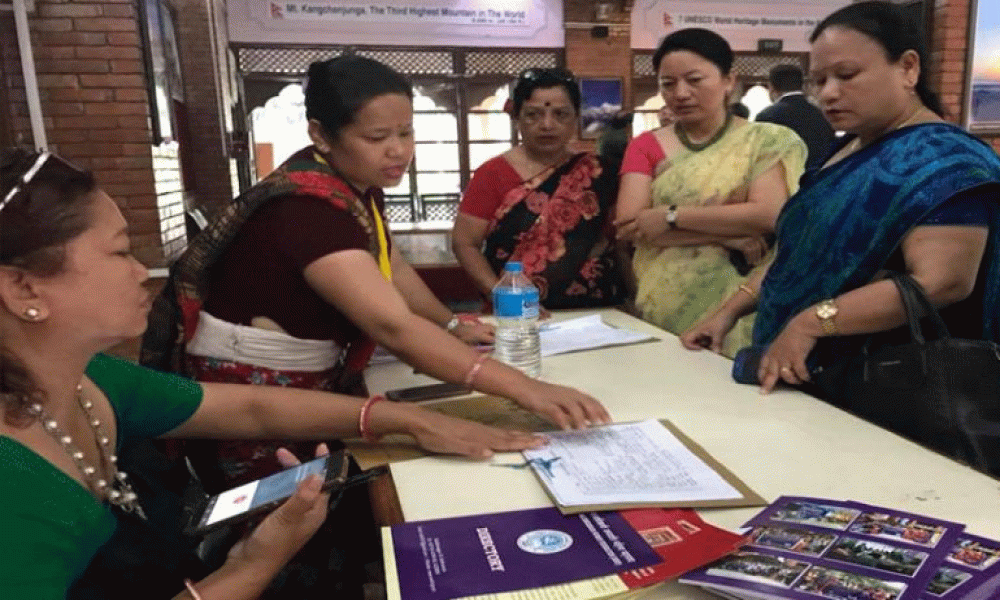Law reforms ensure economic empowerment of indigenous women in Nepal
New book titled 'Economic Empowerment of Indigenous Women in Nepal' launched on the occasion of International day of Indigenous Peoples in Kathmandu calls for law reforms to ensure economic empowerment of indigenous women in Nepal.
The book which was published by UNDP and National Indigenous Women’s Federation (NIWF) was launched by Minister for Women, Children & Senior Citizen Tham Maya Thapa on Saturday.
This book highlights the landscape of indigenous women in Nepal and finds out key challenges and opportunities of their economic development. UNDP Nepal in partnership with National Indigenous Women’s Federation carries economic empowerment of indigenous women.
Dr. Krishna B Bhattachan underscored on the need to ensure indigenous peoples' ownership and control over lands, territories and resources, and reach of indigenous women in decision-making levels.
Presenting a summary of the findings of the research, Indigenous women's book research team leader Dr. Krishna B Bhattachan underscored on the need to ensure indigenous peoples' ownership and control over lands, territories and resources, and reach of indigenous women in decision-making levels.
The book examines issues of loss of ancestral lands and restricted access to forests and natural resources, strong patriarchal divisions of labour, including land ownership norms and participation in decision making processes. It also addresses the development of eco-tourism and of production of high-value cash crops, so as to provide recommendations on how best to empower indigenous women so that they can continue to maintain, preserve and promote, their culture, traditional skills and heritage. "Indigenous people are the wealth & economic agents to transform Nepal into a prosperous country, they should be equipped with skills/ knowledge and opportunities to learn," said Renaud Meyer, UNDP Country Director, launching the book.
Indigenous people are the wealth & economic agents to transform Nepal into a prosperous country, they should be equipped with skills/ knowledge and opportunities to learn.
The book has provided specific recommendations, including reforms in a number of laws relating to management of natural resources, to ensure economic empowerment of indigenous women. For example, considering the need for keeping intact some of the indigenous practices, the study recommends to amend or bring new legislation to formally recognize customary judicial system, such as Barghar/Bhalmansa/Matwa system; to use of Aialni land for economic empowerment activities; to use community forest for movement of Yak and lamb herds and to ensure access to natural resources (wild vegetable, wild fruits, NTFP, etc.) by Indigenous Women.
Click here for book titled 'Economic Empowerment of Indigenous Women in Nepal
video 'Economic Empowerment of Indigenous Women in Nepal









